Nusantara: the perils of Indonesia’s new capital idea
As Jakarta slowly sinks, Indonesia’s new capital city is being built — but not everyone is happy about it.
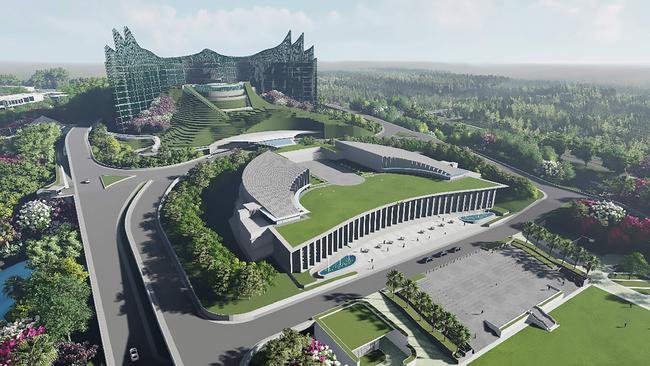
Laws have been passed, dams are being built. It even has a name, Nusantara, which means archipelago. Indonesia’s new capital city in the eastern corner of Indonesian Borneo (Kalimantan) is going ahead as debate rages over whether it will be a blessing or a curse.
For many, relocating the country’s capital is an idea whose time has come.
It is not just that Jakarta is rapidly sinking (government studies suggest 25 per cent of the city will be underwater by 2050) and can barely accommodate the 10 million who sleep there, let alone the 13 million people who populate it in daytime hours.
Decentralising power and money away from Java and spreading opportunity to the farthest reaches of a sprawling, archipelagic nation is important to tens of millions of Indonesians, and an idea considered by every Indonesian president since independence.
Those who oppose the capital’s relocation say it raises the white flag on Jakarta’s many problems – subsidence, lack of green space, traffic congestion, pollution – that must still be tackled if it is to remain Indonesia’s financial centre.
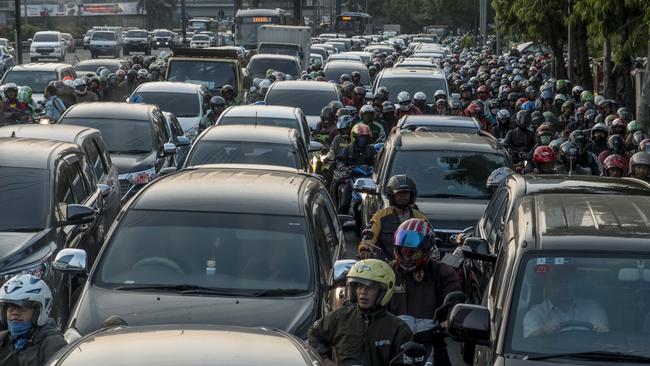
There are also environmental concerns around building a city on an island described by Charles Darwin as “one great luxuriant hothouse made by nature for herself” – even if the location chosen is already degraded by decades of deforestation for commercial forest plantations and mining, and plagued by its own floods and water scarcity issues.
Nusantara will lie 200km from the Heart of Borneo ecoregion, home to hundreds of endangered species including rhinos, elephants, orang-utans and leopards, and ecologists have warned the city’s spillover effects could be far greater than the direct impacts within its eventual 2560sq km city boundaries if not carefully managed.
Even among supporters, there are those who believe the timing is wrong and that the $45bn construction price tag for the first construction phase – half of which could be shouldered by the state if investors don’t soon sign on – should be spent shoring up a pandemic-hit economy.
Julian Smith, a partner with PricewaterhouseCoopers Indonesia, says now is exactly the time for a nation-building project, even if more work needs to be done to “solidify the business case” for private and international investment in private utilities or innovation centres.
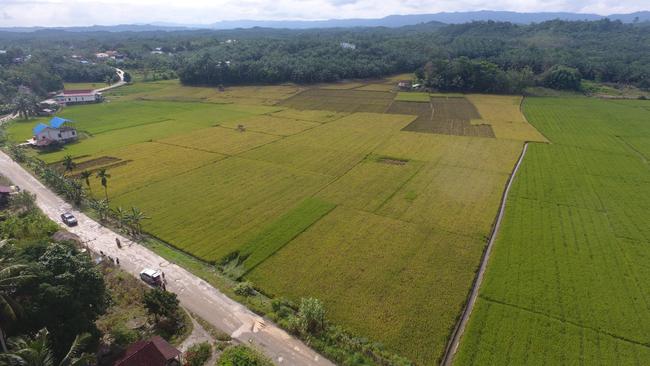
“If you’re going to spend all this money, then spending it when you’re trying to get the country out of recent economic recession is actually a good time to do so,” he told Inquirer.
“I do think fundamentally it’s a good idea and if the government needs to spend money to help the country recover, this strengthens the case because the political and economic issues it was designed to address haven’t changed. If you get the right people leading it and set up the proper management structure, then something amazing could be achieved.”
Smith says establishing an alternative centre – to be built in phases across the next 25 years – will help disperse economic activity and ease pressure on natural resources in Java.
As Indonesia’s economy transitions from oil and coal, fossil fuel-rich East Kalimantan – which contributes $50bn annually to the national economy from oil, gas and coalmining – also will need alternative industries.
Under current plans, the new capital will be a smart, forest city with net-zero emissions. Elevated mass transit lines will connect technology, health and education hubs and eco-friendly high-rise buildings, while bicycles and electric vehicles dominate the tree-lined boulevards below.
Located between East Kalimantan’s commercial capital Balikpapan and its administrative centre Samarinda, in Kutai Kartanegara and North Penajam Paser regencies, it will use existing power lines and highways (some in desperate need of upgrade).
But for a project aimed at unifying the nation, it is proving divisive. In Bumi Harapan, a village of patchwork rice fields and shacks that falls within Nusantara’s “inner ring”, Yati Dahlia – an indigenous (Dayak) woman and traditional dance teacher – tells Inquirer she sees no upside for her family and fears they will end up “beggars or spectators on our own land”.
She worries the best jobs in the construction phase will go to outsiders and that as Nusantara grows – the first public servants are mooted to relocate in 2024 – more of the natural rainforests central to traditional life will be lost.
The family discovered recently that her father’s agricultural land will be inundated by the intake dam now under construction to prevent the new city from flooding – as the whole area does after just a few hours of rain thanks to deforestation. They’ve been told they’ll be compensated but Dahlia doubts it will be enough.
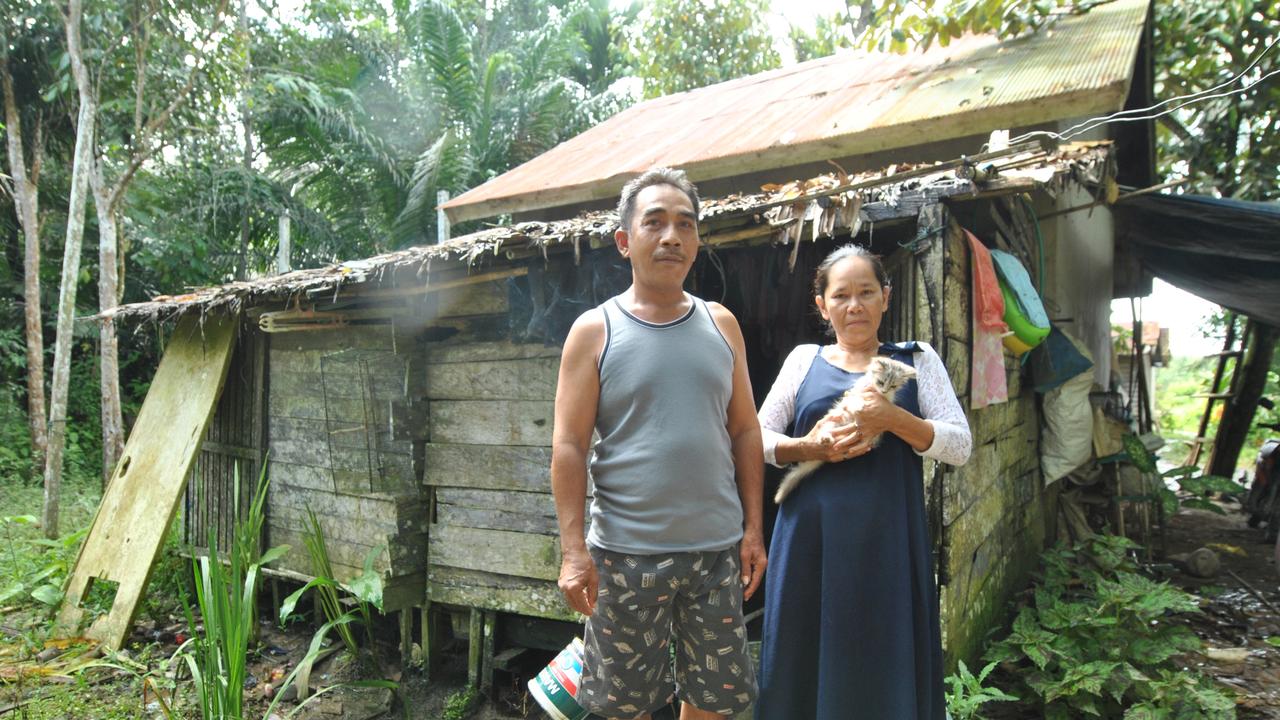
Land prices are skyrocketing as speculators swoop in and – in some cases – take advantage of people who have occupied land for centuries but hold no proof of ownership. A second family parcel has become the subject of a battle with one such speculator.
For the Dayak tribes of East Kalimantan – forest hunters once known for headhunting – landownership is based on collective memory. When proof was needed, families pointed to ancestors’ graves.
But when President Joko Widodo announced the new capital city’s location in August 2019, Dahlia’s family looked at securing a legal land title only to find they could not afford the 45 million rupiah ($4343) cost.
Now they’re locked in battle with a city buyer who paid a local agent Rp350m for the land and wants the family to compensate him to go away. “My father told him: ‘I don’t have Rp45m for a land certificate. What makes you think I have that sort of money to pay you?’ ” she says.
Similar stories across Penajam and Kutai Kartanegara regencies have stirred up memories of earlier “transmigration” efforts, in which millions of Javanese were resettled in Kalimantan and other remote islands to relieve pressure on the most populous centres.
The Indigenous Peoples Alliance of the Archipelago (AMAN) has warned that tens of thousands of people from 21 tribal groups risk displacement to make way for Nusantara.
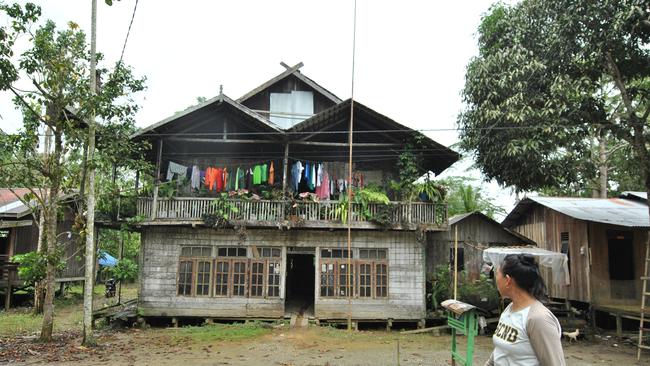
Lalu Didiek Anggrat, a Lombok-born former civil servant who made his wealth in coalmines before turning to social activism, runs a foundation that aims to prepare local communities to take advantage of opportunities presented by the new capital.
But he has little sympathy for land rights complaints and says all Indonesians were given the chance back in 1959 to apply for land deeds.
“The people crying now that ‘this land belongs to my ancestors’, they’re the ones that don’t have documents and whose claims are based on hearsay,” Didiek says. “Of course they’re worried, but what’s the point of being arrogant about land you have no claim over? Those who have legal land certificates will be very happy because it’s a good opportunity.”
Aji Luqman, a historian for the Paser tribe, which combines animist traditions with Islamic beliefs, says transmigration was harrowing for his people and his tribe was determined not to be short-changed again.
Many were coerced into signing blank documents that surrendered their land to newcomers. Vast rainforest tracts, where Dayak hunted deer and collected honey, roots for traditional medicines and rattan for weaving, also disappeared under bulldozers.
At Paser House, an imposing, government-funded building in Penajam town, 10 minutes by speedboat from Balikpapan, the ninth Paser sultan tells Inquirer his people have accepted the new capital “on the condition we can preserve our local values, our land rights, culture, language and symbols”.
Already Sultan Aji Muhammad Jarnawi has leveraged the government’s need for support into legal recognition of the Paser people as the regency’s original inhabitants, but now wants a presidential regulation “so no one can deny our existence”.

The sultan has told the Jokowi administration he expects Paser people without land certificates to be given secure ownership, civil service quotas and university scholarships.
He wants the new city to preserve four existing villages that lie within Nusantara’s three rings of development, and a 70,000ha traditional forest – “the lungs of our region”.
He also has asked for a grand, new palace near the new presidential palace as “a gift from President Jokowi”.
“They have to integrate us into their new capital. If they don’t there will be social conflict.
“If you’re running away from floods in Jakarta, don’t create a flood of anger over here. We have our own laws and believe if the government denies us our rights they will be punished. There will be tribal and magical consequences if they do. It would be a big curse on the new capital city.”
It’s hard not to applaud such savvy even if the demands have raised eyebrows in Jakarta.
But the Paser sultan is hardly the only one looking to capitalise on Nusantara.
A report by a coalition of non-government organisations found the new capital city area is covered by 162 mining, forestry, palm oil and other concessions, owned by some of the country’s most influential figures including Co-ordinating Minister for Maritime Affairs and Investment Luhut Pandjaitan and Yusril Ihza Mahendra, a prominent lawyer who has worked for President Jokowi.
This month the brother of Indonesian Defence Minister Prabowo Subianto called a press conference to deny allegations he had secured capital city contracts in exchange for handing over his land concessions there.
Hashim Djojohadikusumo told reporters the $460m dam he plans to build to pipe water to Nusantara was conceived years before its location was decided, to provide water to Samarinda and Balikpapan, and it was only two years ago that the central government asked him to supply water to the new capital also.
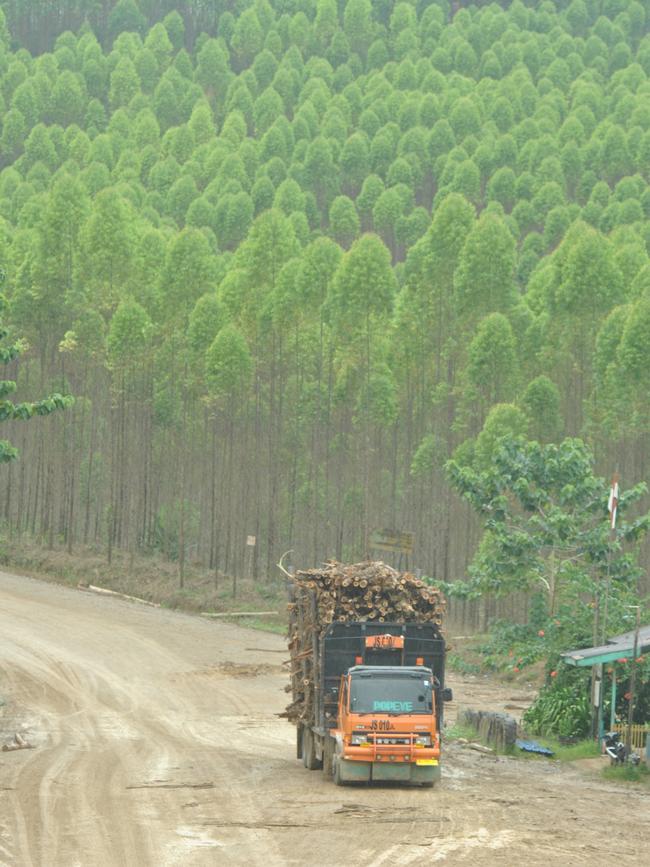
“There are reports the government is dividing projects among businesspeople and so on, but that is a big lie, it’s slander,” Djojohadikusumo says. “There is no political interest here. Clean water is purely for the people of East Kalimantan, based on their request.”
East Kalimantan Chamber of Commerce chairwoman Donna Dayang Faroek says Nusantara has the organisation’s full support, but hopes the government will share the spoils.
“We understand this is a state project so the building of infrastructure for the new capital itself will go to state-owned companies. Even the chief authority (overseeing Nusantara’s construction) will be appointed by the President,” she says.
“We just hope the government will embrace East Kalimantan local business people, for example, in the procurement of goods, heavy machinery, raw materials.
“We’re open to working with investors to help the Indonesian government build supporting infrastructure.”
In the current Sino-wary climate, some also fear China could sweep in, in the absence of other investors, and embed itself in the foundations of Indonesia’s new capital.
Smith says that is unlikely given the scale of the project, and that “each part of the city should be evaluated in terms of who’s best placed to build and finance it”.
He sees opportunities for Australian infrastructure investors, too, if they can be lured to a market of greater uncertainty than their own.
“I’ve been in Indonesia for six years and you wonder, with two large countries next door to each other, why there’s not more investment,” he says.
“There’s a potential role there for Australian companies. The challenge is whether it’s a priority for Australian investors.”
ADDITIONAL REPORTING: CHANDNI VASANDANI


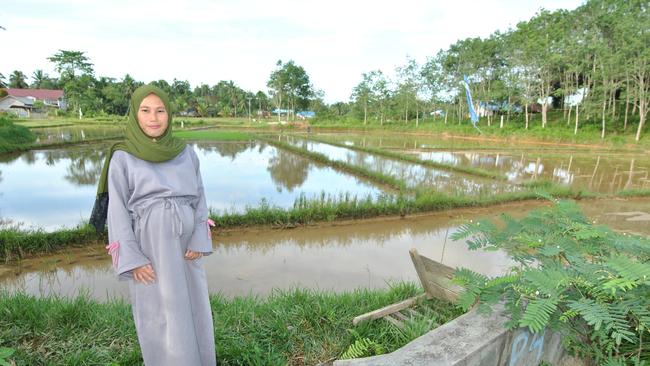
To join the conversation, please log in. Don't have an account? Register
Join the conversation, you are commenting as Logout